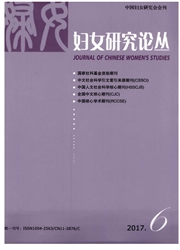

 中文摘要:
中文摘要:
本文利用西安交通大学人口与发展研究所2008年在陕西秦岭山区对贫困农户生计的调查数据,从个人和家庭层面探讨西部贫困山区女性劳动力外出务工的影响因素。结果表明:女性劳动力外出是农户的家庭决策,受家庭特征和女性劳动力个人特征的共同作用;户主年龄、家庭网络、资金可及性和家庭抚养人口等家庭特征对女性外出有显著影响;教育、培训、年龄和婚姻等个人特征对于女性外出有显著影响;家庭特征一方面反映了当地的政策、经济与文化背景等因素的作用,另一方面也体现了农户传统的家庭观念和西部贫困地区农户经济体系的独特性;个人因素体现了家庭对个人的要求,与家庭因素同时发生作用。
 英文摘要:
英文摘要:
Using data fi'om the 2008 survey by the Institute of Population and Development Studies at the Xi'an Jiaotong University, this paper examines the factors determining female labors force out-migration in China's Qinling mountainous area. The survey results reveal that the out-migration of female labor force is generally based on a family decision and that it is therefore affected by both household and individual characteristics. Household bead's age, family networks, access to capital and family dependency ratio have significant impact on women's out-migration. Meanwhile, women's education, skill-training, age and marital status are important individual level factors that may influence their decision to leave home. Household level factors may reflect, on. the one hand, the impacts of local policy, levels of economic development and cultural background, and on the other hand, Chinese traditional family values and the local systems of household economy in this western rural mountainous area. Individual level factors, which often reflect the requirement of the family on migrant women, would influence the out-migration of female labor force together with the household factors.
 同期刊论文项目
同期刊论文项目
 同项目期刊论文
同项目期刊论文
 期刊信息
期刊信息
